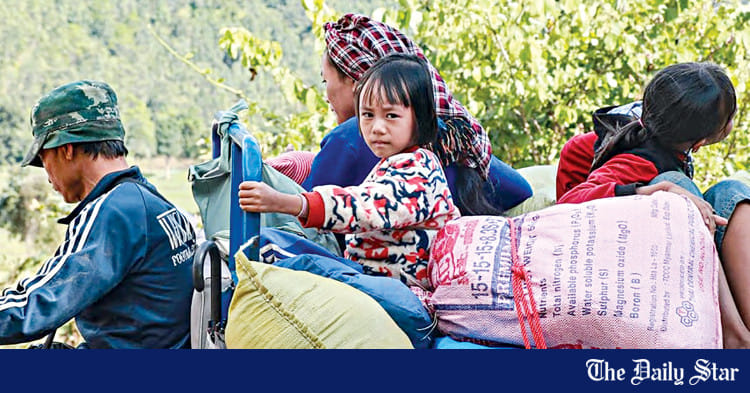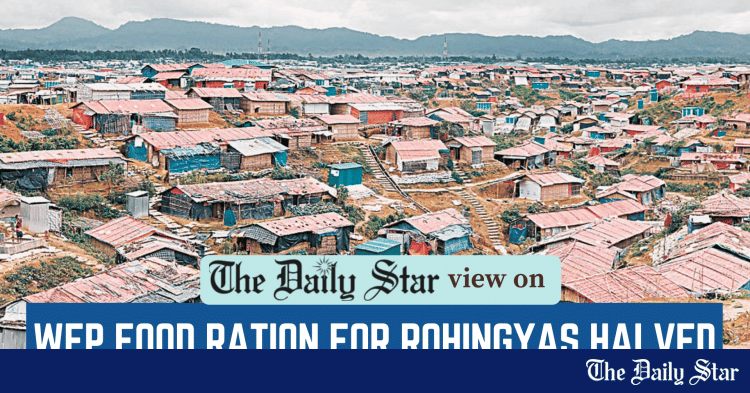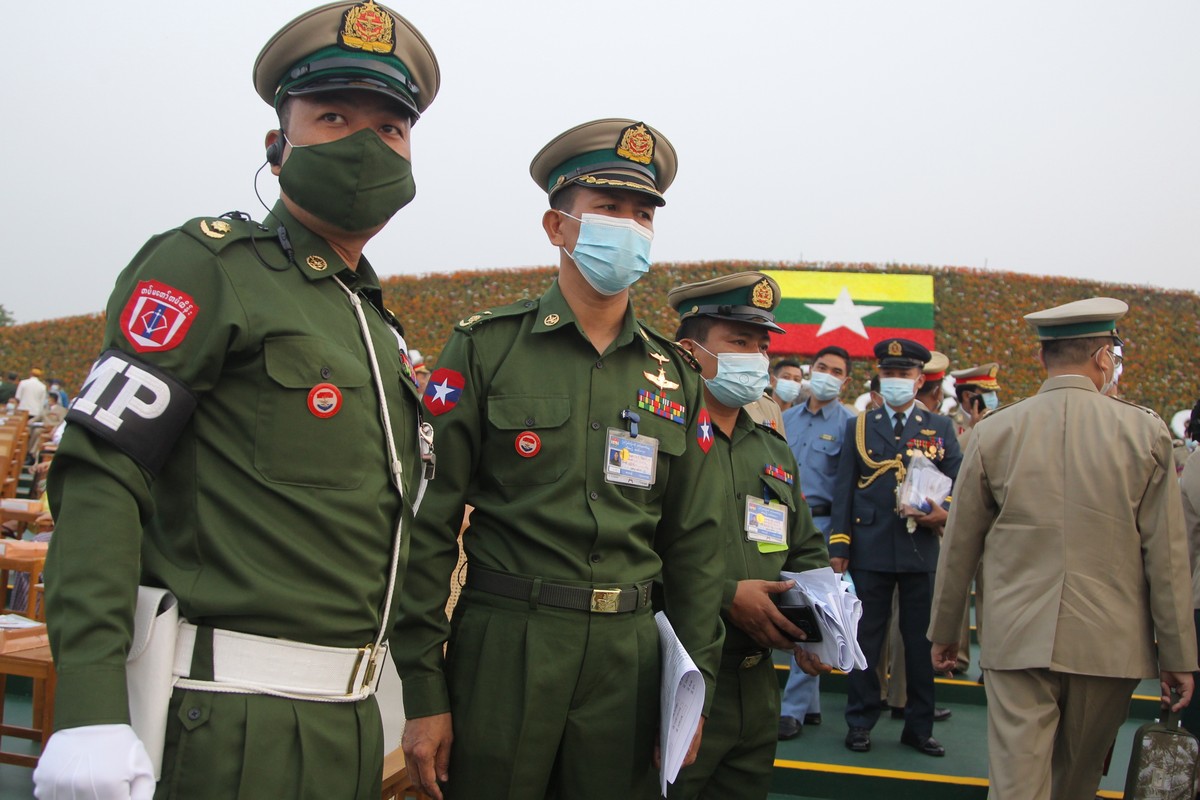Myanmar’s Civil War: Security Implications for Bangladesh
Written by Khandakar Tahmid Rejwan
June 26, 2024
The success of the renewed offensive by anti-junta forces throughout Myanmar in recent months poses critical policy questions for Bangladesh.
While the failing junta government, led by the State Administration Council (SAC), now controls less than 50 percent of the country, one of the most significant rebel gains has been concentrated in western Myanmar. This geographical area mainly comprises Chin and Rakhine State, bordering Bangladesh’s restive southeastern Bandarban and Cox’s Bazar districts. The former is seeing the rise of a new ethnic insurgency led by the Kuki Chin National Front (KNF), while the latter houses 33 major Rohingya refugee camps that have recently seen the mushrooming of armed groups. Ethnic Armed Organizations (EAOs) like the Arakan Army (AA) and Chin National Army (CNA) asserting their control on western Myanmar has significant security and geopolitical implications for southeastern Bangladesh. In response, Dhaka should take prudent measures to address this fallout based on ground realities. This includes establishing contact with the EAOs, collaborating with regional partners to arrange this dialogue, and bolstering its security measures in the Rohingya camps and near the border.
Spillover Effects of Western Myanmar’s Crisis on Bangladesh
Major offensives in western Myanmar led by AA and CNA have engulfed most of the region’s townships, including strategic areas bordering Bangladesh and India. Both AA and CNA are cooperating in order to eliminate the junta and achieve total control of western Myanmar. These EAOs have had several operational successes, such as AA’s capture of about 170 junta military posts in Rakhine and CNA’s control of 70 percent of Chin State, including five major military bases.
This overt change of authority from the junta to EAOs in just one year has a direct impact on Bangladesh. The significant influence of the KNF in Myanmar through its alliance with the CNA has resulted in an uptick of insurgent activity in Bangladesh’s Bandarban district. Dhaka is now facing a new geopolitical environment on its border, which requires dealing with new actors with which it has no communication, let alone any direct relations.
Dhaka is now facing a new geopolitical environment on its border, which requires dealing with new actors with which it has no communication, let alone any direct relations.
Historically, southeastern Bangladesh, which consists mainly of the Chittagong Division, has been a sensitive and volatile zone with regard to the country’s security and stability. The long-fought insurgency in the Chittagong Hill Tracts (CHT) ended in 1997 with historic peace accords, but the roots of the insurgency still remain. This is apparent from the recent clashes between the Joint Forces of Bangladesh and the ethno-nationalist KNF.
The KNF has significant cultural and social ties with the ethnic Kuki-Chin people prevailing in Mizoram of India and the Chin state of Myanmar. In the last three months alone, members of the Bangladesh Army have been the targets of direct attacks from the KNF, including violent robberies in Bandarban and attacks on police stations. Ground reports reveal that KNF fighters have received additional training from EAOs in Myanmar. Furthermore, many fighters in Chin and Rakhine-based EAOs are ethnic Kuki-Chin people. Therefore, there is cross-border ethnic solidarity, asylum facilities, and training inside the Chin State and Rakhine if they face any disadvantage inside Bangladesh.
The anti-junta offensive may also have considerable impact on the one million Rohingya refugees in Bangladesh’s Cox’s Bazar, a region which directly borders Myanmar. Due to geographical proximity to ethnic violence and their prolonged deprivation in camps, some Rohingyas have been turned violent by various armed factions and groups in the region. There are reportedly 11 armed Rohingya groups operating inside the camps, the most prominent being the Arakan Rohingya Salvation Army (ARSA) and Rohingya Solidarity Organizations (RSO). Thus, the EAOs’ heightened control of western Myanmar may result in KNF insurgents using the volatile border to smuggle arms or receive training and clandestine safety from EAOs. Consequently, armed groups inside Rohingya camps could collude with EAOs on human trafficking, forceful recruitment, and narcotics routing.

Moreover, armed Rohingya groups have varied relationships with actors in the current civil war in Myanmar, which could create further destabilizing effects. The relationship of the Rohingyas to the AA is as hostile as with the junta. The SAC’s recent drive to recruit Rohingyas can bolster this animosity. On the other hand, armed groups inside Rohingya camps can establish a haven in Rakhine State due to the collapse of adequate border security. A prolonged refugee crisis, a slow-paced repatriation process, and rising violence inside camps, combined with a volatile border, unpredictable EAO relationships, and diverse interests, could create a breeding ground for new conflict and violence.
Dhaka Must Respond
Bangladesh has yet to take any significant measures to address these developments. This is because Dhaka has always focused on staying neutral on the internal affairs of any state based on its dovish foreign policy stance and nonintervention principles. It seems to be trying to decode the motives of these EAOs, which is further complicated by Chinese and Indian efforts to influence these groups for their geopolitical interests.
First, policymakers should recognize that the SAC is no longer a viable authority in western Myanmar. Thus, Dhaka would have to disregard its traditional skepticism and distrust of non-state actors and establish channels of communications with EAOs across the border, not least to curb the tense security situation on its border through diplomacy. This is particularly important for the prolonged and protracted Rohingya refugee crisis. Several efforts to voluntarily repatriate the refugees back to Rakhine have faced blowback. Most recently, a China-brokered scheme was rejected by the Rohingyas for not ensuring security and providing rehabilitation guarantees. To find a sustainable negotiation on refugee repatriation, Dhaka should focus on developing confidence building measures with the EAOs. This can be a win-win situation for AA and Dhaka as it will informally acknowledge AA’s authority in Rakhine while also benefiting the latter if it leads to formal repatriation of Rohingya refugees. The Bangladeshi government should also initiate a security dialogue with AA and CNA to find a solution to the cross-border movement of armed groups and cooperation with the KNF.
Dhaka would have to disregard its traditional skepticism and distrust of non-state actors and establish channels of communications with EAOs across the border, not least to curb the tense security situation on its border through diplomacy.
To support its efforts, Bangladesh should look for viable diplomatic partners for cooperation on these issues. India, recognizing the shift in power to EAOs, seems to be doing outreach to the AA to secure its interests. Dhaka could take a leaf out of New Delhi’s book and do the same, or even seek New Delhi’s help in facilitating this contact. Bangladesh could also initiate a dialogue with India to share assessments of and coordinate actions to deal with the instability in Myanmar, given that cooperation with China is unlikely due to its strong relationship with SAC. Finally, Dhaka must bolster border security, protection, and surveillance measures to prevent spillover of violence and instability into Bangladesh. Recent fighting between AA and SAC near Saint Martins in Bangladesh justifies the necessity of more robust security measures. Both tough and soft approaches, including regular checks on arms smuggling, capturing of gang leaders, and community recreational activities for refugees, should be undertaken by the Bangladeshi government, to ensure both a short and a long-term solution to this multi-pronged crisis.











































